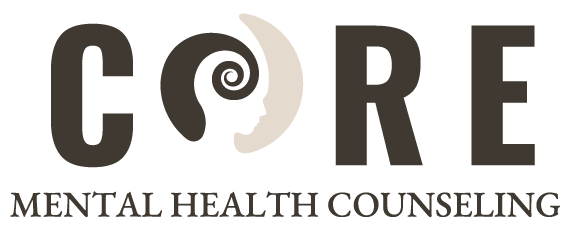Counseling children and adolescents is unique.
With adults, they usually come to counseling sessions knowing what they would like to work on or talk about.
Children and adolescents may be confused and may be coming to therapy because someone else (parent, guardian, teacher, etc.) felt they had something to “work on” or were concerned.
I was a counselor in a pediatric primary care setting for 10 years. It was a distinctive and valuable experience which helped me to learn a lot about child development.
It has been said that anxiety is the most common mental health disorder among adults. Studies show it is also on the rise among children and adolescents – “as many as one in eight children may experience significant anxiety.” (Psychology Today, n.d.)
It can be perplexing because everyone experiences a degree of anxiety at some point in their life. The difference between normal anxiety and an anxiety disorder is the severity. It’s normal for kids to have anxiety too and it can change throughout the developmental stages. The first day of school, clowns, sudden loud noises, etc. are just some common fears.
Just because a child or adolescent has some worries, does not mean they have an anxiety disorder. As I previously stated, the worries can change during development. Children may worry about monsters, ghosts, something under the bed, etc. when they are younger. In middle childhood, they may start to worry about physical danger, getting sick, getting hurt, or doing well in school. During adolescence, they may start to worry about “social affairs, death, and illness.” (Broeren, n.d.)
It’s important for kids to learn that worries (or anxiety) can be useful; it keeps us safe, and it can be normal (depending on the degree of it). Nevertheless, it is no longer helpful when it holds you back from your day-to-day life, prevents you when having new experiences, or is all-consuming. The average age that children develop anxiety disorders is 11 years old.
Here are some signs to watch for which may indicate it’s time to consider some additional support or therapy for your child:
Extreme distress
Avoiding certain situations, places, people, activities, etc.
Extreme focus on what can go wrong.
Fears that interfere with daily activities.
Distressed despite adult’s reassurances.
Changes in appetite. Changes in sleep (sleep difficulties or needing to sleep with parents).
Physical symptoms (headaches, stomachaches, etc.) that do not stem from another medical condition.
Problems in multiple areas of life (such as family, school, friends, sports, etc.).
Makes comments like “I wish I wasn’t here” or “No one would care if I ran away.”
Repetitive, self-destructive behaviors (skin picking, hair pulling).
Low self-esteem or feels bad about self, less confident, less effective.
Withdraws from family or friends.
Loses interest in usual activities/hobbies.
Excessive worry about the future.
Engages in negative behavior more frequently.**
Talks about or engages in any form of self-harm.**
Talks explicitly about suicide.**
Expresses hopelessness.**
** these may be a sign of another serious condition that should be considered immediately
What to do..
There are many resources available if you are considering therapy for your child or teen. It may be helpful to start with the child’s primary care doctor. They can rule out other diagnoses and may be able to provide referrals. There are also websites such as www.psychologytoday.com which will show counselors in your area.
In the meantime, it is helpful for parents and guardians to remember that children are like sponges – they soak up what’s around them. This includes emotions and behaviors. If a parent/guardian is overly anxious, it may be beneficial to consider getting some support for him or her as well.
A great book that I often recommend for kids is called “What To Do When You Worry Too Much” by Dawn Huebner. It’s a workbook that guardians can do with their kids. It’s recommended for ages 6-12 years old.
https://health.clevelandclinic.org/your-childs-anxiety-when-to-worry-when-to-relax/
https://health.clevelandclinic.org/signs-your-child-may-need-a-therapist/
https://www.psychologytoday.com/us/basics/anxiety/children-and-anxiety
https://www.aetna.com/health-guide/kids-anxiety-whats-normal-seek-help.html
https://www.ncbi.nlm.nih.gov/pmc/articles/PMC2765654/

